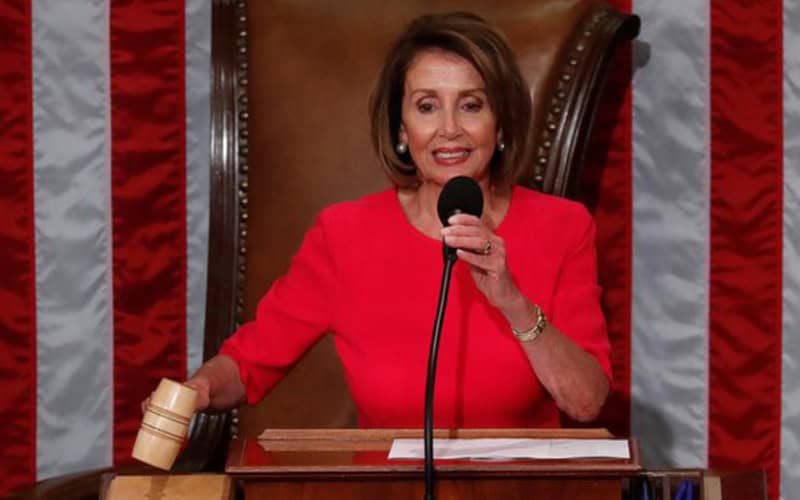Washington: Citing the ongoing partial government shutdown, House Speaker Nancy Pelosi has postponed US President’s State of the Union address in the House Chamber.
“I am writing to inform you that the House of Representatives will not consider a concurrent resolution authorizing the President’s State of the Union address in the House Chamber until government has opened,” Pelosi stated in a note penned down to Trump on January 23.
This afternoon, I sent @realDonaldTrump a letter informing him that the House will not consider a concurrent resolution authorizing the President’s State of the Union address in the House Chamber until government has opened. https://t.co/r1oad0xEAh pic.twitter.com/kGEbayx95u
— Nancy Pelosi (@SpeakerPelosi) January 23, 2019
The House Speaker further outlined that she looks forward to welcoming the US President to the House “on a mutually agreeable date” for the address when the government reopens.
“When I extended an invitation on January 3 for you to deliver the State of the Union address, it was on the mutually agreed upon date, January 29. At that time, there was no thought that the government would still be shut down,” Pelosi wrote.
“In my further correspondence of January 16, I said we should work together to find a mutually agreeable date when government has re-opened and I hope that we can still do that,” she mentioned in the letter.
The partial government shutdown – the longest in US history – has crossed over a month, after it came into effect on December 22 due to an impasse between the Congress and Trump over funding for a wall on US’ southern border with Mexico.
Pelosi had, earlier as well, asked Trump to defer his address at the House Chambers or send his address in writing to the Congress, owing to the shutdown.
Over 800,000 federal workers have gone without pay since the shutdown came into effect, with the stalemate between Trump and Congress showing no signs of thawing.
Meanwhile, the US Senate will vote on two proposals on January 24 to reopen the government. However, the chances of either of them passing are slim. While the Republicans have a 53-47 majority, the funding bills require 60 votes for passage.
[source_without_link]ANI[/source_without_link]

